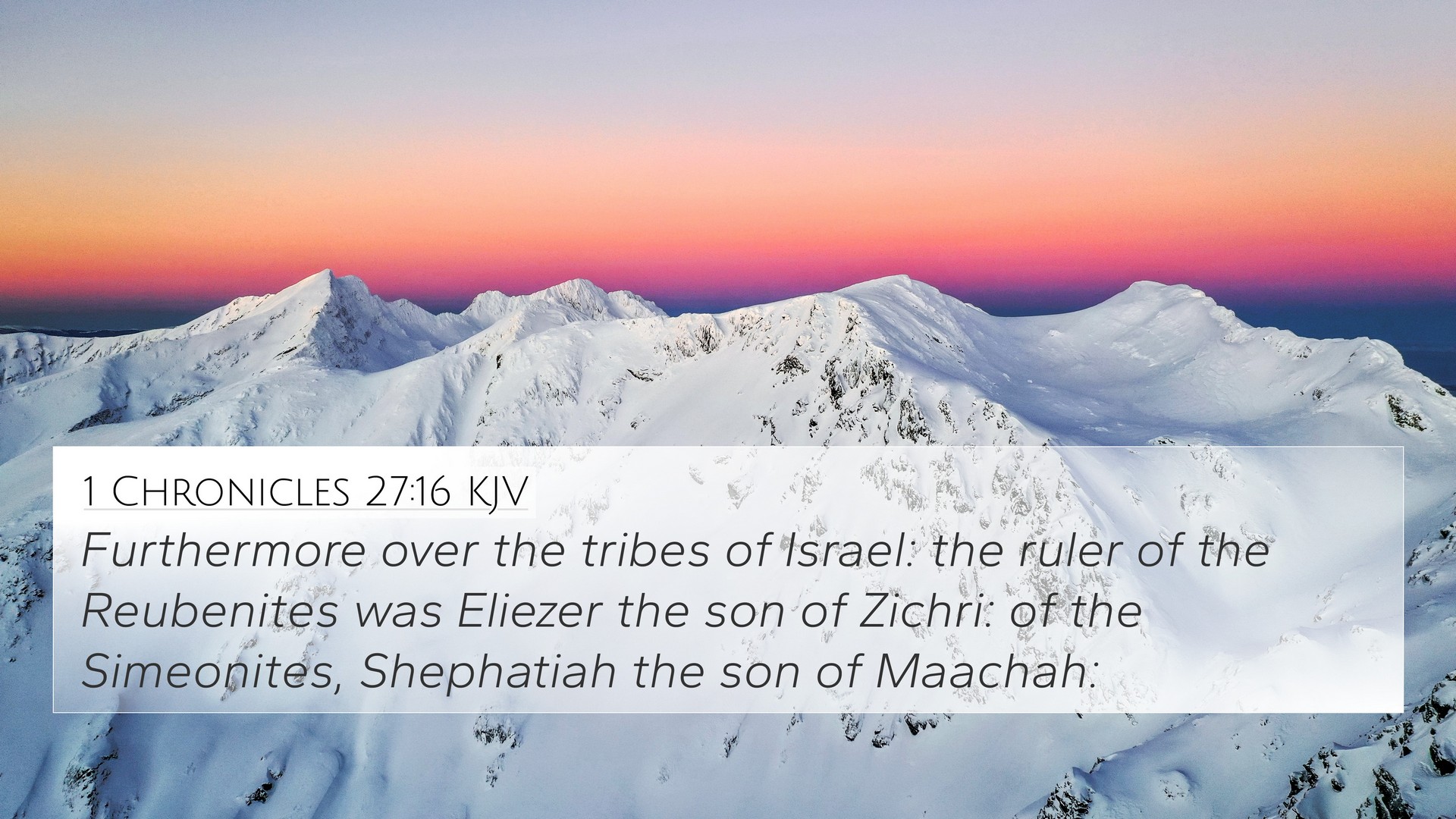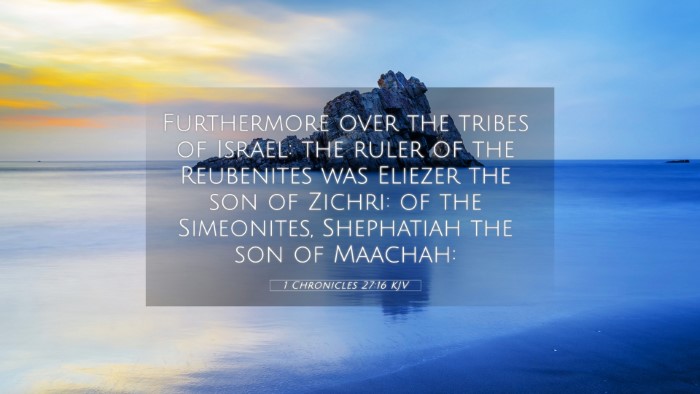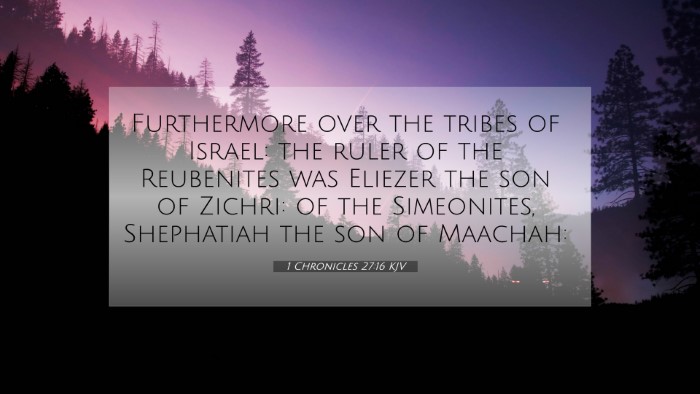Understanding 1 Chronicles 27:16
Verse Context: 1 Chronicles 27:16 reads:
"The leaders of the tribes of Israel were: for Reuben, Eliezer son of Zikri; for Simeon, Shephatiah son of Maacah."
Summary of Meaning
This verse is part of a larger section that outlines the organization of King David's army and the administrative structure of Israel. It lists various tribal leaders appointed to oversee different areas, reflecting David's methodical approach to governance.
Commentary Insights
-
Matthew Henry:
Henry emphasizes the importance of order and structure in leadership, illustrating how David wisely selected leaders from each tribe to ensure proper governance and military structure.
-
Albert Barnes:
Barnes points out that these appointments demonstrate the diverse representation of all tribes in the kingdom, reinforcing the unity of Israel under David's reign. The mention of specific names signifies their roles not just administratively but also spiritually, indicating their responsibility to God and the people.
-
Adam Clarke:
Clarke notes that the inclusion of tribal leaders might point towards future responsibilities and the way they would serve in both military and civil roles. This preparation for leadership showcases David’s strategic planning and the importance of collaboration amongst the tribes.
Bible Verse Cross-References
- Exodus 18:21: Discusses the selection of leaders over the people.
- Numbers 1:4-16: Contains lists of tribal leaders during the census.
- Deuteronomy 1:13: Moses is instructed to choose wise, understanding, and experienced men as leaders.
- 1 Chronicles 5:23: Addresses the these tribes and their roles within Israel.
- 1 Chronicles 28:1: Illustrates service and organization in David’s kingdom.
- Luke 12:48: "To whom much is given, much will be required," reflecting the accountability of leaders.
- Hebrews 13:17: Reminds believers to obey and submit to their leaders, echoing the significance of governance.
Thematic Connections
The appointment of leaders in 1 Chronicles 27:16 has broader implications that resonate throughout Scripture, including themes of:
- Leadership and Responsibility: The emphasis on accountable leadership as demonstrated by David reflects the overall biblical mandate for just and righteous governance.
- Unity Among Tribes: David’s organization promotes unity and collaboration, indicative of the church fellowship and communal responsibility seen in New Testament teachings.
- God's Sovereignty in Leadership: The selection of leaders mirrors God's initiatorial role in setting authorities, thus encouraging believers to understand their place within God's plan.
Inter-Biblical Dialogue
1 Chronicles 27:16 can be part of a deeper study involving inter-Biblical connections:
- This verse connects with Paul’s letters, wherein he discusses the body of Christ and the diverse roles within it (1 Corinthians 12). Both emphasize every part's importance for functioning effectively.
- It complements themes in the Psalms that speak of God's appointed leaders, particularly in how He guides and establishes authority (Psalm 75:6-7).
- By examining these connections, one can explore how Old Testament leadership models shape understanding of New Testament church leadership.
Conclusion
1 Chronicles 27:16 serves as a vital link within the broader narrative of Israel's history and governance. By studying the appointed leaders and their roles, one can draw practical lessons about leadership, responsibility, and community in both the Old and New Testaments. The connections between this verse and various biblical themes enhance our understanding of scriptural cross-referencing and the cohesive message of the Bible.
For Further Study
Consider using tools for Bible cross-referencing and study methods to find more connections and deepen your understanding of this and related verses:
- Bible Concordance: To identify significant terms and their occurrences.
- Comparative Bible Verse Analysis: For examining similarities and differences in themes and teachings across scriptures.
- Cross-reference Bible study methods: To explore the relational network of biblical texts for more profound insights.


